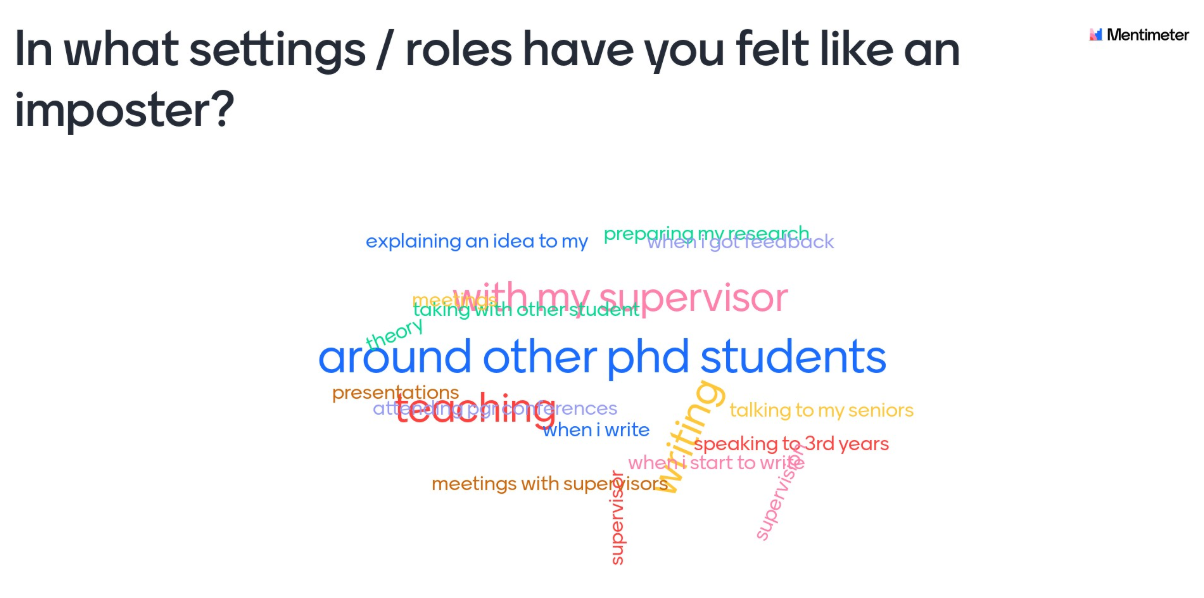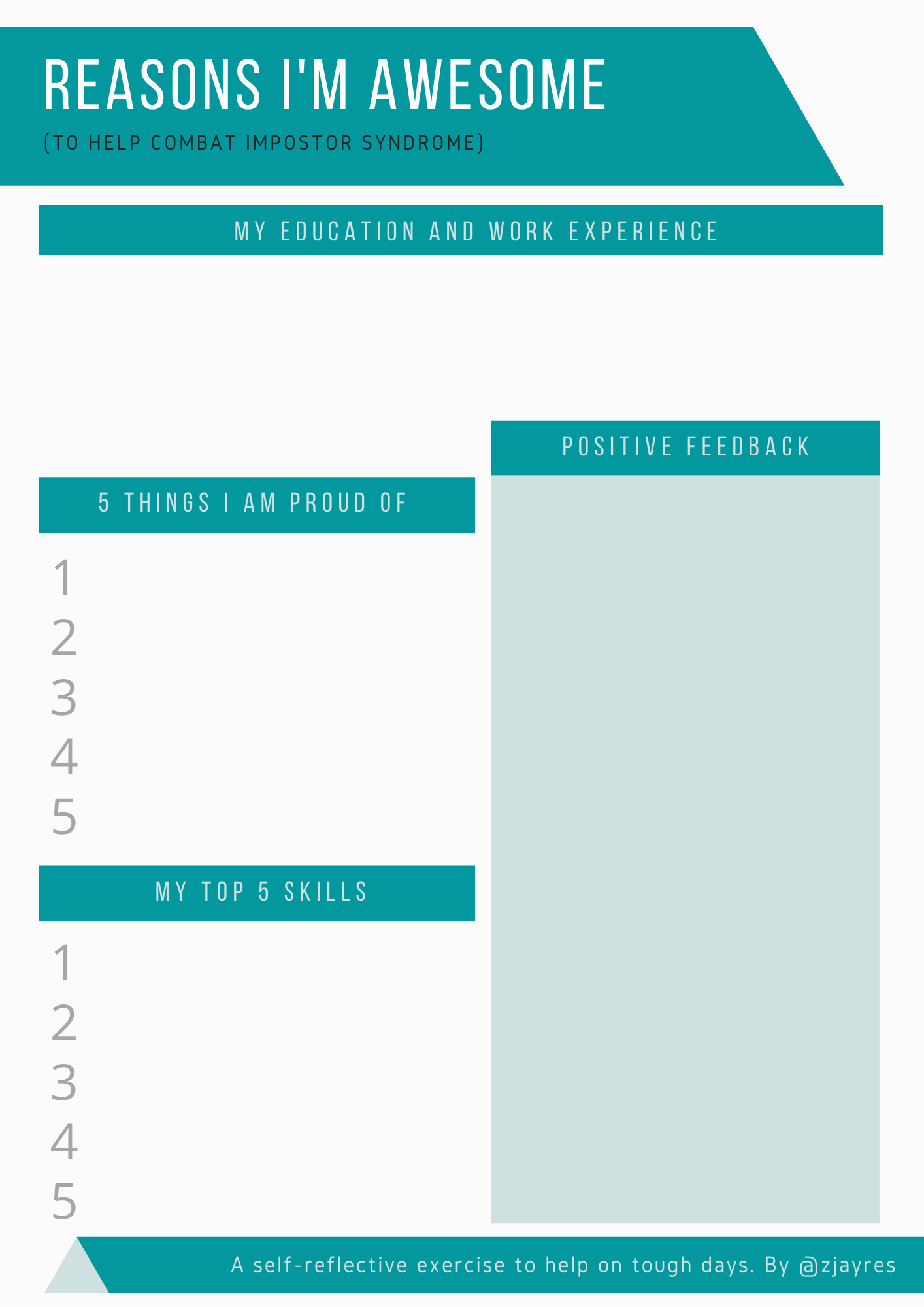
Kelly Louise Preece is the Researcher Development Manager for PGRs in the Doctoral College. You’ll recognise her face from workshops, her voice from WEBINARs, and her jokes from the 90s. You can follow her on twitter @Preece_Kelly for musings about Researcher Development and the PGR experience…interspersed with tweets about superheros, sewing and cute cat photos.
Last autumn, Dr. Caitlin Kight (Senior Academic Developer) and I collaborated to develop a workshop on impostor syndrome for PGRs. We already offer a number of wellbeing sessions on the Researcher Development Programme (RDP) for PGRs, but wanted to augment our exisiting offer by developing a session to address an issue we know is endemic in the PGR community. Impostor syndrome can result in significant issues with wellbeing and motivation, and leave some PGRs questioning whether an academic career is for them. The session provided a space for PGRs to share their experiences of impostor syndrome in a safe environment, and to work with the faciliators and their peers to come up with suggestions of how to combat feelings of impostor syndrome. Caitlin and I didn’t have the answers – indeed we frequently experience impostor syndrome ourselves! – but in the session we aimed to use our expertise to ask the right questions. And the responses to these questions were powerful. As such we wanted to share them with you here – anonymised – in the hope that sharing these discussions more widely will help other PGRs who are experiencing impostor syndrome feel less alone.
Why do we experience impostor syndrome?
- We hold ourselves to high standards and have high expectations of ourselves (often having higher expectations of ourselves than we do of others)
- We compare ourselves to others too much, because we are socialised to compete with others from a young age
- We don’t want to let people down/we experience feelings of guilt
- We fear of looking stupid, and our sense of value/self-worth is connected to intelligence
What is it about the culture and context of academia that might cause Imposter Syndrome?
- HE is an environment where we are rated and judged on our intellectual abilities (through academic assessment, metrics like the TEF and REF, student evaluations)
- The competitive nature of academia (which can often mean people aren’t always constructive or kind)
- HE has structural issues such as racism, gender inequality and queerphobia
- Academia is performative, and can be lonely and isolating
- In academia, IQ is valued more than EQ (emotional intelligence)
We ended the session by brainstorming ways to overcome impostor syndrome in practice. Here are some of the suggestions we came up with:
- Actively reward yourself for deadlines and achievements
- Collect good feedback or a list of achievements to look at when you are feeling down
- Focus on what you know, rather than what you don’t know
- Try to remember that the standards in academia are not person-specific, and it is acceptable to go at your own pace
Scientist and mental health advocate Dr. Zoe Ayres shared a great template recently on Twitter, to fill in and have on hand when impostor syndrome strikes!
When I’m struggling with impostor syndrome I like to listen to what I called the ‘impostor syndrome anthem’ by Grace Petrie – Nobody Knows That I’m a Fraud – and remember:
Well some days life feels like a play that you have not rehearsed
But one thing’s true of all of us sharing this universe
Is we could all be doing better and we could all be doing worse
And everyone you know feels like a fraud


